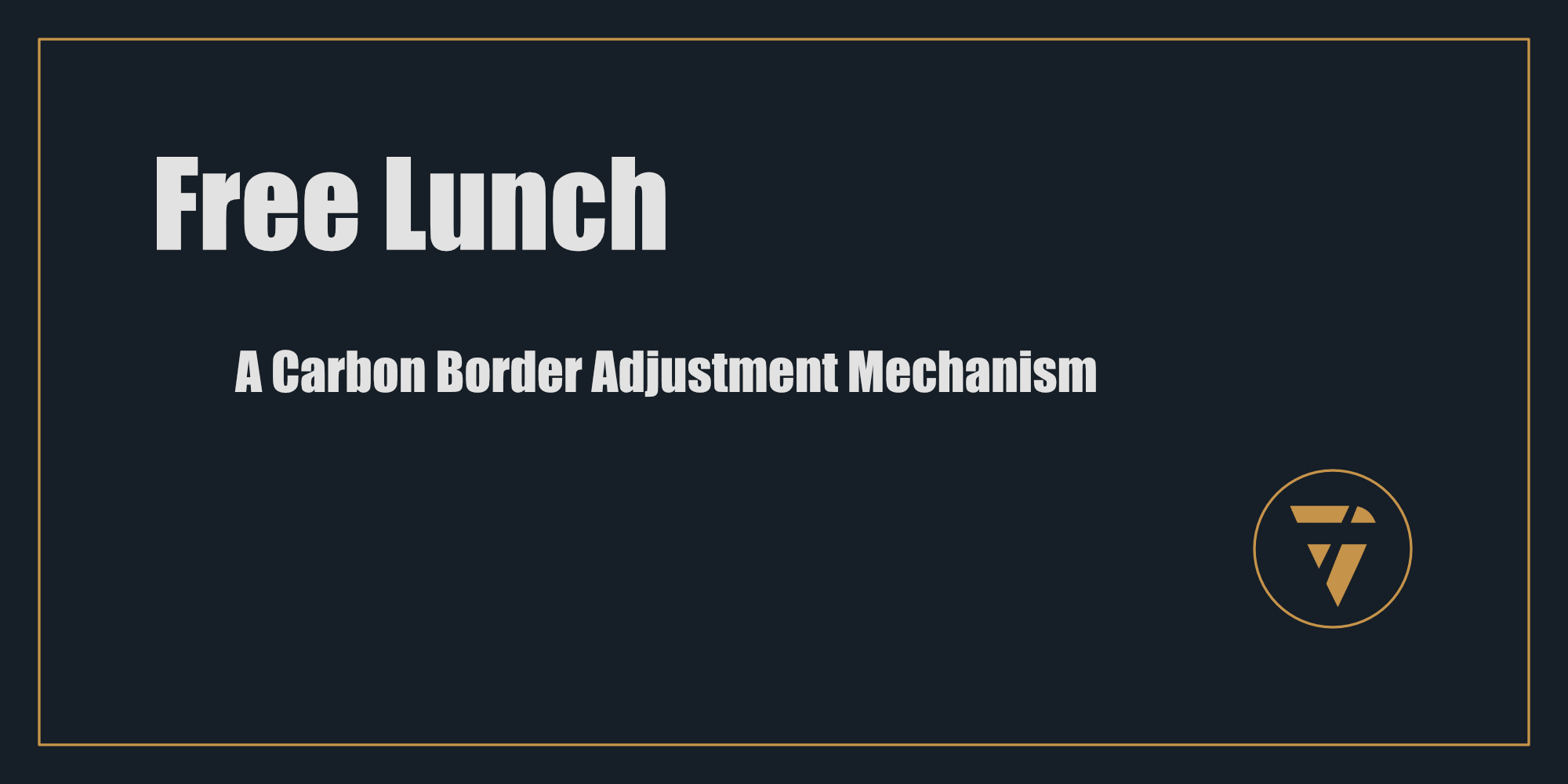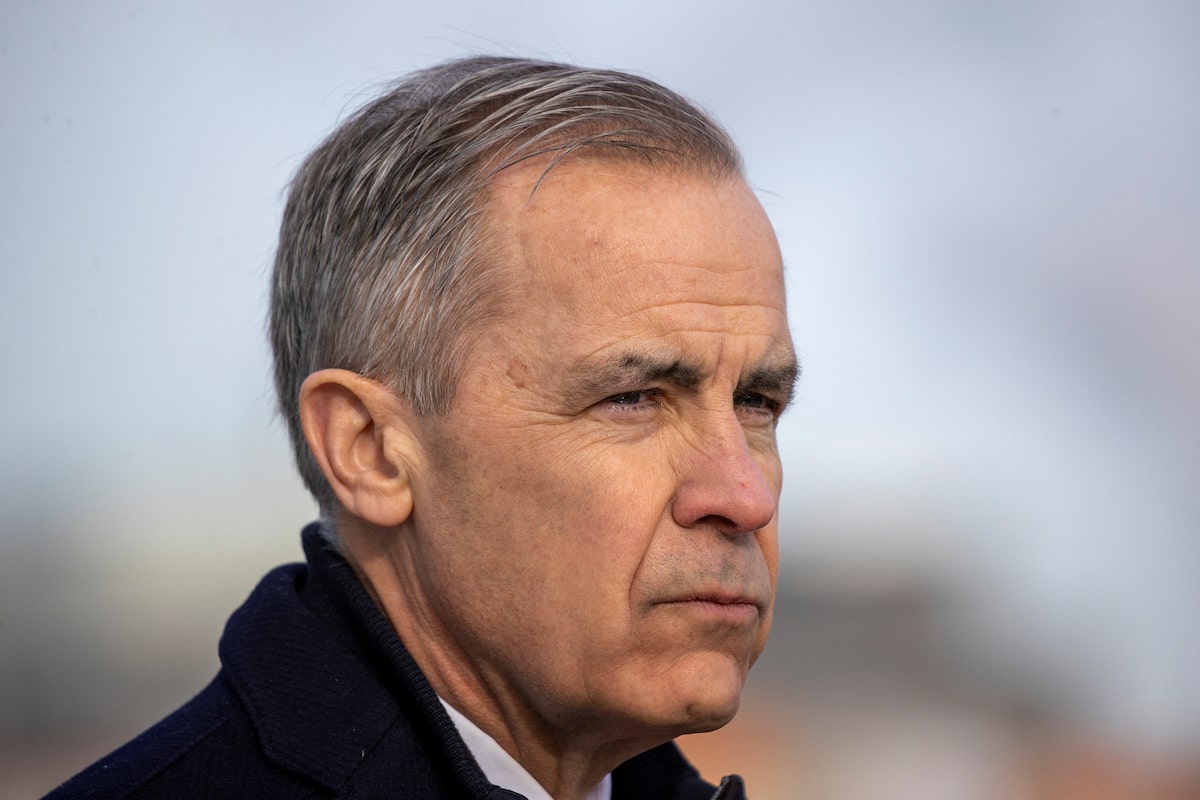Free Lunch

A Carbon Border Adjustment Mechanism
In the intricate dance of economics and corporate strategy, the adage "There's no such thing as a free lunch" resonates with profound truth. Coined to convey the principle that every benefit comes at a cost, this saying underscores a fundamental reality: the expenses we avoid today inevitably become the debts we must settle tomorrow. This concept is particularly salient when examining how corporations have historically externalized costs, especially concerning environmental impacts.
The only free lunch is the banquet we have all been serving to shareholders.
We paid the bill. We are paying the bill.
If we stop paying, they don't eat.
The Historical Context of 'Free Lunch'
The phrase "There's no such thing as a free lunch" gained prominence in the mid-20th century, popularized by economist Milton Friedman. It encapsulates the idea that even if something appears free, there are hidden costs borne by someone, somewhere. In the corporate realm, this translates to the often unseen or ignored expenses that businesses impose on society and the environment.
Corporate Externalities: Passing the Buck
For decades, many corporations have engaged in practices that, while profitable, shift significant costs onto the public. Environmental degradation, pollution, and resource depletion are prime examples of negative externalities—costs that are not reflected in a company's financial statements but are borne by society at large. This approach has allowed businesses to maintain lower operational costs and higher profit margins, all while the true price is paid by communities and ecosystems.
The Emergence of Carbon Pricing: Settling the Unpaid Bill
As awareness of environmental issues has grown, mechanisms like carbon pricing have been introduced to hold corporations accountable for their contributions to climate change. Carbon pricing assigns a monetary value to the emission of greenhouse gases, effectively internalizing the previously externalized costs. This shift compels companies to recognize and account for the environmental impact of their operations, aligning their financial incentives with ecological responsibility.
The Predictable Backlash: Resistance to Accountability
Unsurprisingly, the move towards carbon pricing and similar accountability measures has met with resistance from sectors accustomed to externalizing costs. Arguments often centre around the potential negative impact on economic growth and competitiveness. However, these objections frequently overlook the broader perspective: the long-term economic and social benefits of sustainable practices far outweigh the short-term costs of adaptation.
"...negative impact on economic growth and competitiveness." If this is your argument, then I'm guessing you already ate everyone else's lunch. You, are the negative impact on growth.
Reframing the Narrative: From Cost to Investment
It's essential to shift the narrative from viewing environmental responsibility as a financial burden, to recognizing it as a prudent investment. Sustainable practices can lead to innovation, efficiency gains, and new market opportunities. Companies that proactively embrace accountability not only contribute to the well-being of the planet but also position themselves for long-term success in an increasingly eco-conscious market.
Embracing True Cost Accounting
The era of the "free lunch" in corporate operations is drawing to a close. As mechanisms like carbon pricing become more prevalent, businesses must adapt to a landscape where all costs are accounted for, and accountability is paramount. By embracing true cost accounting and integrating sustainability into their core strategies, corporations can transform potential liabilities into opportunities for innovation and leadership. The unpaid bills of the past are coming due; it's time for businesses to settle them responsibly, and pave the way for a sustainable future.
Mark Carney’s latest economic proposition rolls out a vision that suggests climate action can be cost-free, painless, and, miraculously, profitable for everyone. But there’s a fundamental truth that cuts through this illusion—there has never been a free lunch. Someone has always been paying. And that someone has been us.

For decades, corporations operating in Canada—and across the globe—have profited immensely from what they haven’t had to pay for: the land they’ve depleted, the water they’ve polluted, the air they’ve poisoned. Every tonne of carbon dumped into the atmosphere without consequence, every subsidy pocketed under the guise of “economic development,” every resource extracted without restoration—those weren’t free. They were just placed on a different balance sheet, paid for by taxpayers, communities, and the environment itself.
Corporate profits have been artificially inflated by a system that has allowed businesses to externalize their costs while internalizing their gains. This isn’t capitalism; it’s corporate welfare at its most insidious.
The True Cost of a ‘Free’ Economy
For generations, industries have built their wealth on the back of unaccounted-for destruction. They’ve privatized the benefits and socialized the losses, and now, when the bill is finally arriving, they recoil in horror, insisting they cannot possibly afford to pay.
The math is simple: if a business has spent decades profiting from pollution, then that business, and its shareholders—not the public—should bear the cost of reversing the damage. The principle of carbon pricing is not radical; it is simply an overdue invoice for services rendered. Governments are not imposing an unfair burden; they are merely asking industry to clean up the mess it made, rather than leaving it to future generations.
Yet the pushback is fierce. Corporate leaders claim these policies will cripple investment, kill jobs, and make products unaffordable. But let’s be clear—what they are really saying is that they want to continue offloading their expenses onto the public while keeping the spoils for themselves.
Accountability: Not a Burden, but a Responsibility
Climate transition policies should not be framed or allowed as a “cost to taxpayers.” Taxpayers have already paid, over and over again, through environmental degradation, healthcare costs, disaster recovery, and lost economic opportunities. The ones who should pay now are those who took the benefits without paying the true cost—corporate shareholders, executives, and investors who built empires on environmental exploitation.
A just transition does not mean subsidizing industry yet again. It means shifting the financial burden back to where it belongs—onto those who profited from the damage. Governments should be mandating corporate-funded cleanup, ensuring that businesses reinvest their profits into sustainable transformation rather than share buybacks, followed by demanding public handouts.
The End of the Free Ride
For too long, corporations have operated under an economic model where they extract wealth while leaving destruction in their wake. That era is coming to an end. The only real question is whether industry will finally accept responsibility, or whether they will continue their futile resistance, hoping to pass the bill on to the next generation.
The real cost of business has always existed. It was simply hidden in the fine print of a rigged system. Now, the invoice is due. The ones who ate the lunch should pick up the cheque.
This is what I’m working on. Tell me what you think, I enjoy the conversation! Subscribe and follow the work in real time.
Thanks!
B

The only free lunch is the trillions shareholders stole by dodging accountability. We’ve been paying their tab for decades, in polluted air, wrecked land, and public subsidies. In blood, fire, and flood. Now the bill is due. Time for them to pay for what they ate.
PS -







